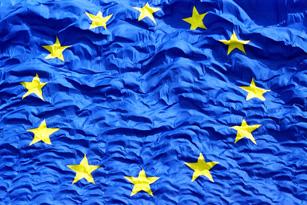
On the occasion of World Refugee Day, on 20 June, the European Commission and the High Representative made the following statement:
"This year, World Refugee Day comes at a time when the world is facing a global pandemic that has already cost the lives of thousands of people and is affecting the livelihood of millions more. The struggle is even harder for refugees, internally displaced persons, migrants and stateless persons. With limited or no access to medical care and protection mechanisms, these people are more vulnerable to the effects of this global crisis.
One in every 97 people on earth have been displaced because of conflict or persecution. By the end of 2019, almost 80 million people in the world have been forced to leave their homes. This includes nearly 26 million refugees, 4.2 million asylum seekers, around 45.7 million internally displaced people, and 3.6 million Venezuelans displaced abroad.
The coronavirus does not discriminate between people and knows no borders. Its scale has required a fast and coordinated global response, based on international solidarity. No one must be left behind. Vulnerable populations, including refugees, are at the heart of the EU's Global response to the coronavirus crisis. The European Union reaffirms its unwavering solidarity with the millions of people who have to flee their country, at times leaving their families behind, because their home is no longer safe.
The EU is committed to the respect of the Geneva Convention for Refugees, which is the cornerstone for the protection of refugees, and to preserve the right to asylum and the principle of non-refoulement as enshrined in the EU Charter of Fundamental Rights. It is essential that even during the pandemic, fundamental principles continue to apply globally so that those in need can continue accessing procedures for international protection and finding shelter, also through resettlement. Countries most exposed, including those hosting thousands of refugees, must be helped to face the difficulties they encounter. The EU recognises its share of responsibility for offering protection to those in need and supporting other countries. EU Member States pledged to resettle almost 30,000 refugees in 2020, representing 40% of all resettlement pledges worldwide. The Commission will continue to support Member States to fulfil their pledges.
The EU is at the forefront of the global response to this pandemic. The Team Europe approach, that combines resources from the EU, its Member States and financial institutions, responds to the humanitarian needs in health, water and sanitation systems caused by the crisis, including for the benefit of refugees, migrants and internally displaced persons. It also reinforces partner countries' capacities to deal with the pandemic and to mitigate its socio-economic impact, in particular on groups at risk, such as refugees and host communities from Cox's Bazar in Bangladesh to Kakuma in Kenya, Zaatari in Jordan, and Barranquilla, in Colombia.
Refugees can be catalysts for positive change. This was confirmed by the first Global Refugee Forum in December 2019 where the international community was called upon to share the responsibility, in line with the Global Compact on Refugees. Today, we pay tribute to the many refugees working on the frontlines to fight the coronavirus in Europe, in many cases putting their own health at risk, to save others. Their contribution is vital.
Integration is a priority for this Commission. The EU has put in place a robust set of measures to ensure that newly arrived people have access to essential services such as education, social welfare, healthcare and accommodation.
The European Union is founded on democratic values and respect for human rights. To that end, we will continue to play a leading role in guaranteeing the protection of refugees."
Details
- Publication date
- 19 June 2020
- Author
- Directorate-General for Neighbourhood and Enlargement Negotiations
